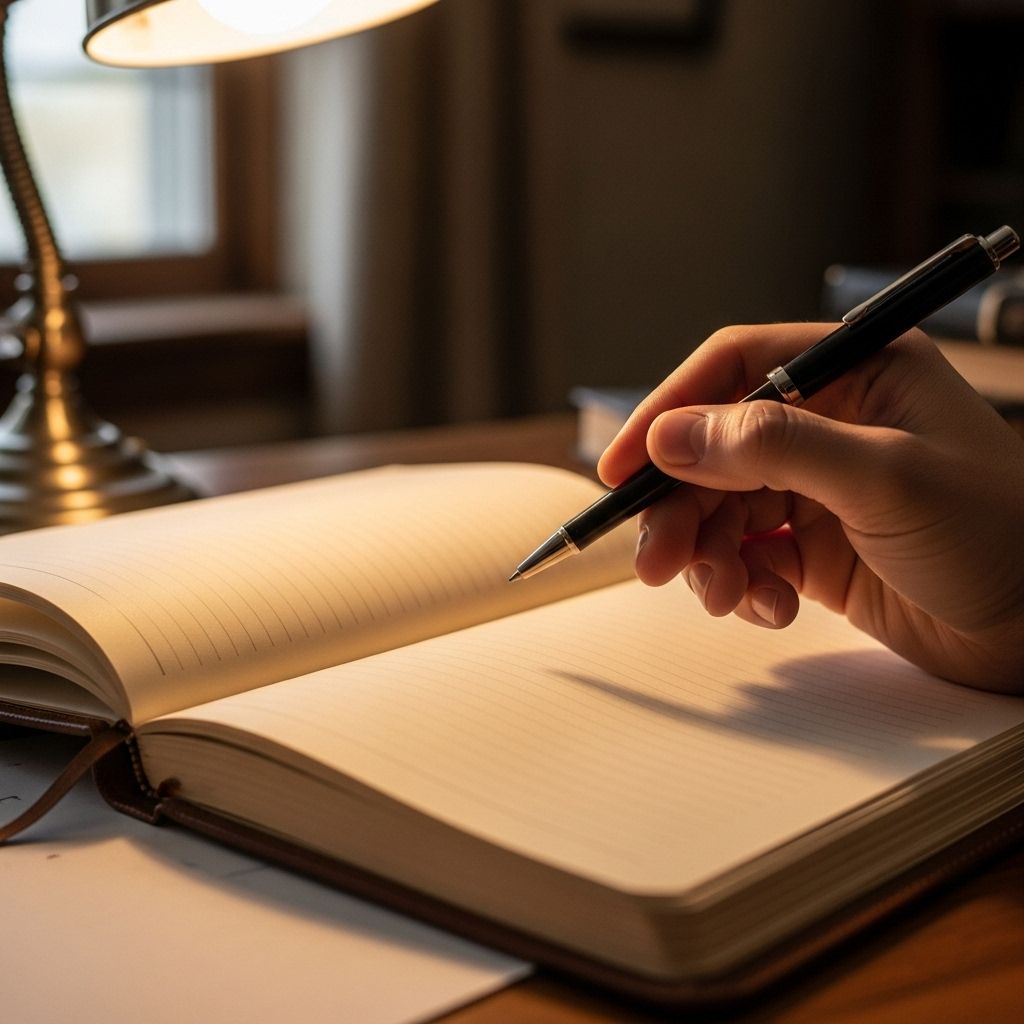Overcoming Self-Censorship in Journaling: Addressing the Fear of Being Read
Privacy and confidence pave the way for genuine reflection on the page.

Table of Contents
- Why Self-Censorship Occurs
- Overcoming Self-Censorship
- Strategies for Authentic Journaling
- Frequently Asked Questions (FAQs)
Why Self-Censorship Occurs
Self-censorship in journaling often stems from a deep-seated fear of being read by others. This fear can be rooted in past experiences where one’s trust was violated, leading to anxiety about sharing personal thoughts or feelings. Additionally, the desire to present oneself in a socially acceptable light can also lead to self-censorship, as individuals may feel compelled to hide aspects of themselves that they perceive as negative or socially unacceptable.
Types of Fear
Fear of judgment and rejection is a significant motivator for self-censorship. Individuals might worry that if others read their journal, they will be judged based on their thoughts, feelings, or experiences. This fear can be exacerbated by past experiences where one’s privacy was violated or where they were judged harshly by others.
Triggers for Self-Censorship
Self-censorship can be triggered by various factors, including:- Historical Trauma: Past violations of trust or privacy can make individuals more cautious about expressing themselves freely.- Social Pressure: The desire to fit in or avoid social criticism can lead to editing or censoring one’s thoughts.- Personal Standards: High self-expectations can also cause individuals to censor themselves to maintain a certain image.
Overcoming Self-Censorship
To overcome self-censorship, it’s crucial to address the underlying fears and anxieties. Here are some strategies to help you journal more authentically:
Reframing Journaling
Journaling should be viewed as a personal and therapeutic process rather than a means to impress others. By focusing on the therapeutic benefits of journaling, such as improved self-awareness and emotional release, one can reduce the fear of being judged.
Building Trust
Establishing trust in oneself and the journaling process is vital. This can involve setting clear boundaries and ensuring privacy, such as choosing a secure location for the journal and using passwords or locks if digital.
Strategies for Authentic Journaling
Here are some strategies to help you maintain authenticity in your journaling:- Stream of Consciousness Writing: Allow yourself to write freely without editing or pausing to think. This helps capture thoughts and feelings without censorship.- Low-Pressure Techniques: Start with simple exercises like doodling or writing prompts to ease into journaling without feeling overwhelmed.- Reflecting on Motives: Understand why you are journaling and what you hope to achieve. This can help align your journaling with your personal goals rather than external expectations.
Dispelling Common Fears
Common fears that might lead to self-censorship include the fear of being read or judged. However, it’s essential to remember that journaling is a personal act and that you have control over who sees your entries.
What Matters in Journaling
In journaling, what matters most is the act of writing itself, not the outcome or the potential readers. The therapeutic benefits of journaling, such as emotional release and self-reflection, are more important than how others might perceive your writing.
Frequently Asked Questions (FAQs)
Q: Why do I feel the need to censor myself in my journal?
You might feel the need to censor yourself due to fear of judgment, past experiences where privacy was violated, or the desire to maintain a certain image.
Q: How can I overcome the fear of being read in my journaling?
To overcome this fear, focus on the therapeutic benefits of journaling, ensure privacy and security of your journal, and practice authentic writing techniques like stream-of-consciousness writing.
Q: What are some strategies for maintaining authenticity in journaling?
Strategies include using stream-of-consciousness writing, employing low-pressure techniques, and reflecting on your personal motivations for journaling.
References
- https://www.becomingwhoyouare.net/101/
- https://tildes.net/~health.mental/1ge8/those_who_journal_how_do_you_do_so_authentically_how_to_stop_self_editing_or_censoring_yourself_and
- https://www.socialsciencespace.com/2024/02/a-behavioral-scientists-take-on-the-dangers-of-self-censorship-in-science/
- https://www.bps.org.uk/psychologist/self-censorship-controversy-and-taboo-psychological-science
- https://journals.sagepub.com/doi/full/10.1177/17456916241252085
- https://www.jstor.org/stable/48756024
Read full bio of Sneha Tete












